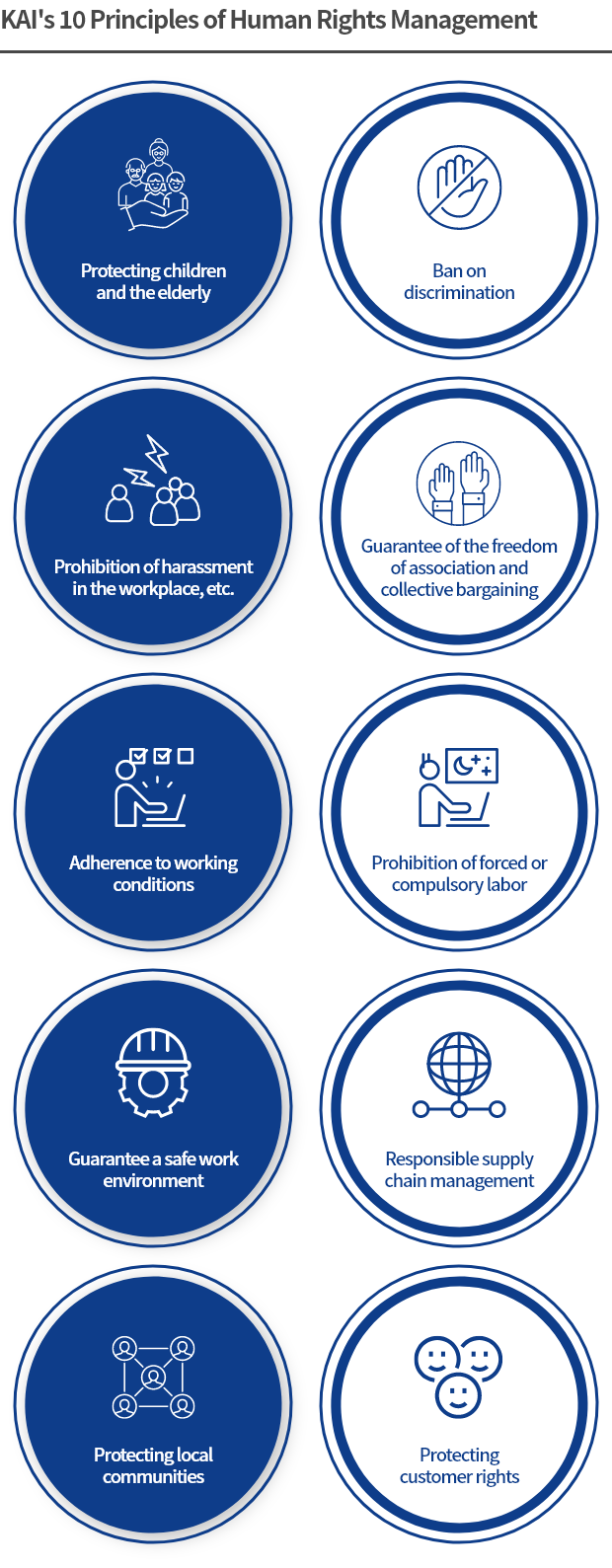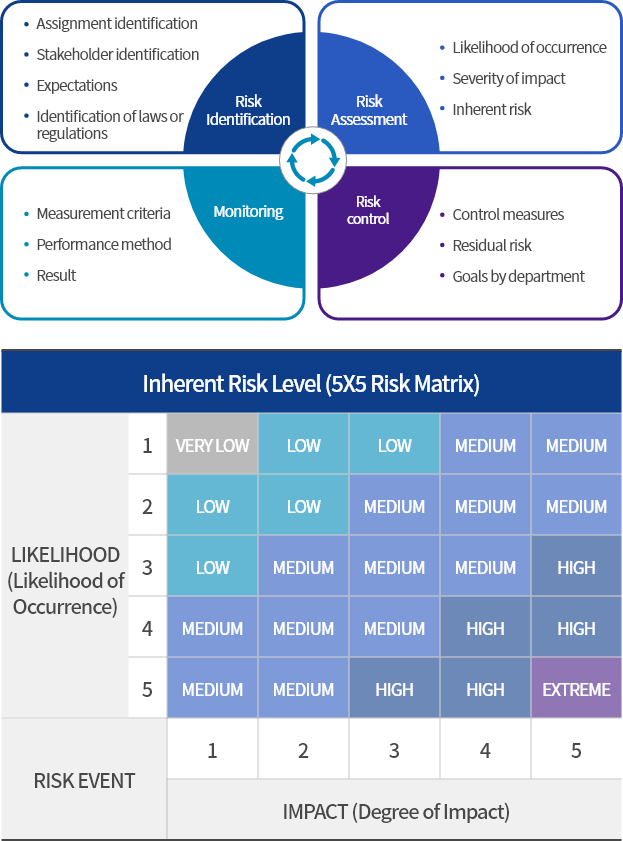Human Rights Management
KAI respects the human rights of all stakeholders,
including its employees, business partners in business contracts,
and local communities.
Human Rights Management Policy
Human Rights Management Principles
Human rights management includes activities, goals, and systems to respect and protect the human rights of stakeholders and to fulfill responsibilities. KAI has established a compliance management system based on international standards such as the Universal Declaration of Human Rights, the UN Guiding Principles on Business and Human Rights, the ILO Constitution, and the UN Convention on the Rights of the Child, and actively implements human rights management in accordance with social responsibilities and standards. KAI is committed to identifying, assessing, preventing, and resolving risks that may affect human rights and to making the protection of human rights a top priority.

Human Rights Training
Every year, KAI conducts human rights training for all employees through various methods (online training, collective training, distribution of training materials, etc.), including legally required training on disability awareness and sexual harassment prevention.
Grievance Procedure for Human Rights Violations
KAI operates an online and offline reporting system to protect the human rights of all stakeholders, including employees, business partners in business contracts with KAI, and local communities. KAI operates an online reporting system to report all human rights violations within and outside the company, as well as non-human rights issues such as local communities. The reports can be made anonymously and are only handled by the relevant departments (Compliance Team, Management Diagnosis Team, etc.) to protect the victims.
In addition, when KAI receives a complaint about offline human rights violations, the relevant department (HR Department) reviews the content and takes action, and if necessary, personnel measures are taken. Furthermore, KAI operates a grievance counseling center to provide free counseling on workplace harassment, sexual grievance, etc., and psychological testing to protect employees' human rights.
Human Rights Management Risk Management System
Based on the "Duty Identification and Risk Assessment" business standard, KAI identifies, controls, and monitors human rights management risks for all stakeholders, and inherent risks at a "medium" level or higher are set as control targets to manage risk mitigation systematically.
